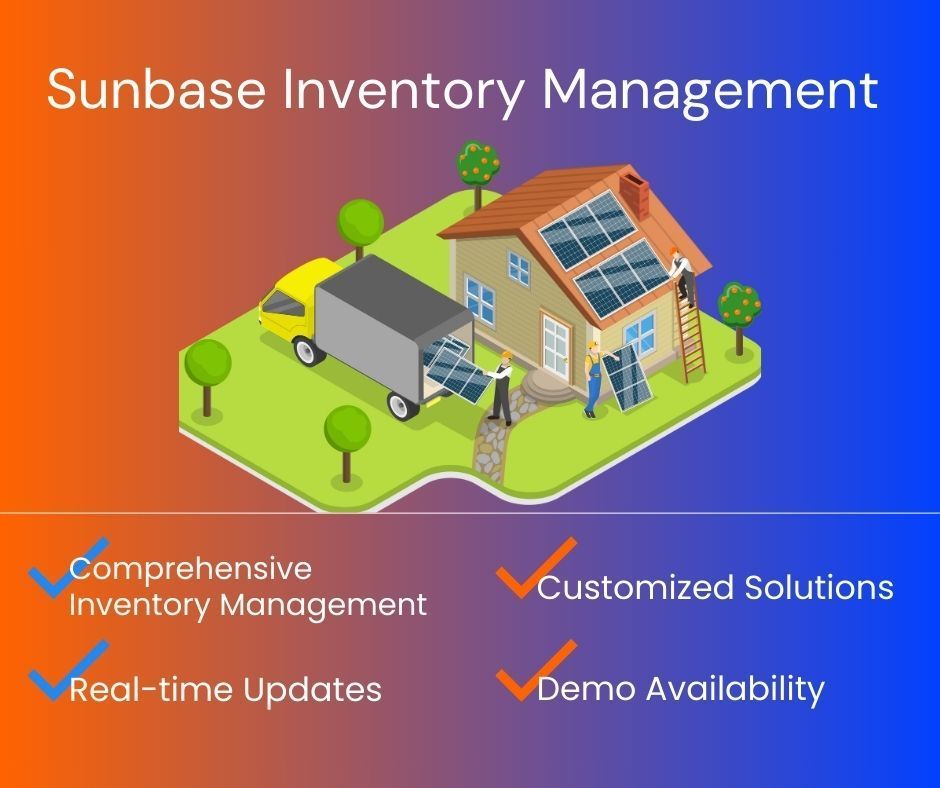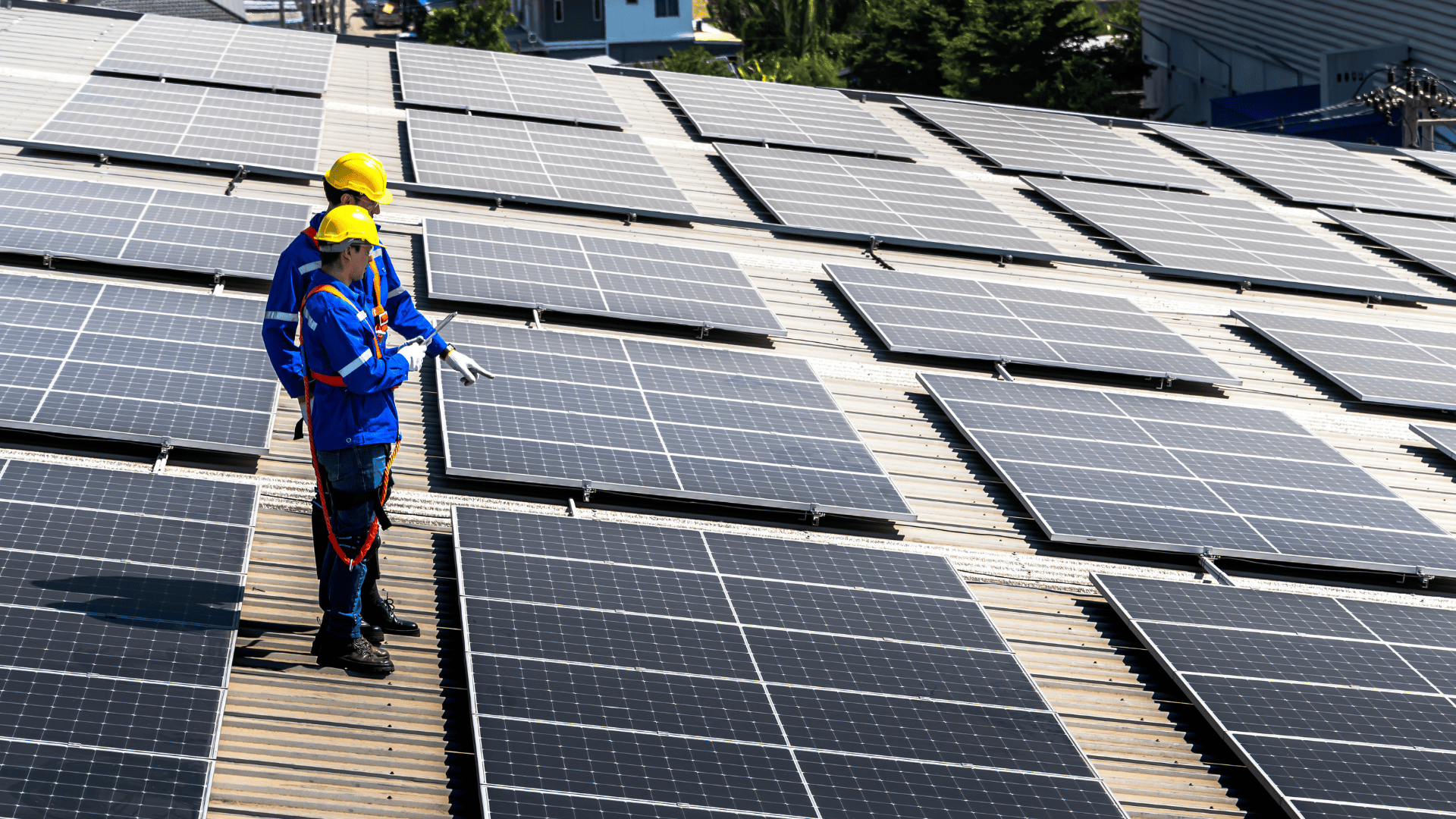January 22, 2024
Solar Inventory Management is a crucial aspect of the solar energy industry, ensuring efficient and smooth operations. With the growing demand for renewable energy, managing solar inventory effectively has become paramount.
By implementing robust inventory management systems, solar companies can minimize costs, prevent stockouts, and improve customer satisfaction.
In this article, we will delve into the significance of solar inventory management and explore strategies for optimizing inventory in the solar energy sector.
What is Solar Inventory Management?
Solar Inventory Management is a strategic approach to overseeing and optimizing the components and resources involved in solar energy production. It goes beyond simple stock-keeping, involving the meticulous tracking, organization, and utilization of various elements essential to the functioning of a solar energy system.
From solar panels and inverters to cables, connectors, and other associated components, every item in the solar inventory plays a crucial role in the overall performance and efficiency of the solar installation. This management process encompasses activities such as procurement, storage, tracking, and deployment of solar components.
What is the importance of Solar Inventory Management?
The importance of solar inventory management cannot be overstated. It is the linchpin that integrates, optimizes, and sustains the entire solar energy ecosystem.
By embracing advanced inventory management solutions, solar companies can elevate their operations, meet regulatory challenges head-on, and contribute to a future where clean energy is not just a goal but a sustainable reality. Let's have a deeper look at it:
1. Integrating Inventory with Solar Asset Management
In the world of solar energy, smoothly combining inventory and asset management is crucial for running things efficiently. It's like conducting a well-coordinated orchestra to make sure everything works together seamlessly.
By uniting these two crucial aspects, solar asset managers ensure that every solar component is accounted for, monitored, and optimized within the broader context of the entire solar infrastructure.
This integration allows solar companies to holistically oversee their assets, identify potential bottlenecks, and strategically plan for maintenance and upgrades.
2. Maximizing Operational Efficiency
Operational efficiency is the heartbeat of any successful solar venture. Advanced solar inventory management acts as the conductor, fine-tuning the rhythm of operations, reducing downtime, and optimizing the allocation of resources.
By providing real-time insights into inventory levels, demand forecasts, and supply chain dynamics, solar companies can make informed decisions, streamline workflows, and accelerate project timelines. The result is a harmonious flow of operations that maximizes productivity and minimizes operational and maintenance costs on solar energy projects.
3. Ensuring Regulatory Compliance
In the ever-evolving landscape of the solar industry, regulatory compliance is not just a checkbox; it's a strategic advantage.
By providing transparent documentation, traceability, and automated reporting features, these systems empower solar companies to navigate the complex regulatory environment with confidence, reducing the risk of penalties and legal complications.
4. Enhancing Long-Term Sustainability
Sustainability in the solar industry extends beyond clean energy production; it encompasses how resources are managed throughout the lifecycle of solar assets. Solar inventory management plays a pivotal role in enhancing long-term sustainability by minimizing waste, optimizing resource utilization, and extending the lifespan of solar components.
Through predictive analytics, quality control measures, and strategic planning, solar companies can ensure that their investments contribute not only to immediate energy needs but also to a resilient and sustainable energy future.
Choosing the Right CRM for your business can be challenging. Read and know about the Top CRM solution in 2024
What are the Challenges in Solar Inventory Management?
There are several challenges involved with inventory management but solar companies can turn potential pitfalls into opportunities for growth and innovation. By embracing advanced solar inventory management solutions, they position themselves not just to withstand industry challenges but to thrive in an ever-evolving solar landscape.
So let's understand the challenges in this path and how inventory management systems can help you.
1. Seasonal Demand Fluctuations
Navigating the ebb and flow of seasonal demand is akin to riding a rollercoaster in the solar power industry. Seasonal variations create challenges in accurately forecasting inventory needs.
During peak seasons, demand may skyrocket, requiring sufficient stock to meet customer needs, while off-peak periods may leave companies grappling with excess inventory and renewable energy assets.
However, advanced solar inventory management systems provide a strategic advantage by leveraging historical data and predictive analytics to anticipate these fluctuations.
2. Technological Obsolescence
In the fast-paced realm of solar technology, staying ahead of the curve is both a necessity and a challenge. The risk of technological obsolescence looms large, with innovations rendering existing components outdated faster than anticipated.
Advanced solar inventory management tools incorporate predictive analytics to identify potential obsolescence risks. By staying attuned to emerging technologies and industry trends, solar companies can proactively manage their inventory, ensuring they always have the latest and most efficient components of solar photovoltaic PV systems in stock.
3. Supply Chain Disruptions
The interconnected global marketplace brings immense opportunities but also introduces vulnerabilities, especially when it comes to supply chains. Events like natural disasters, geopolitical tensions, or unforeseen global crises can disrupt the supply of essential solar components.
This transparency enables solar companies to swiftly identify and mitigate potential disruptions, ensuring continuity in their operations and timely project deliveries.
4. Quality Control and Warranty Tracking
Maintaining the highest quality standards in solar components and assets is non-negotiable. Quality control and warranty tracking pose significant challenges, especially as solar projects expand in scale and complexity.
Advanced solar inventory management systems provide robust quality control measures, ensuring that components of the solar PV systems meet stringent standards.
Moreover, these systems offer transparent warranty tracking, allowing companies to monitor the performance of every solar asset and facilitating timely warranty claims. This proactive and continuous process not only safeguards the reputation of solar companies but also ensures the long-term reliability of solar installations.

Sunbase Inventory Management
Sunbase Inventory Management is a powerful software designed specifically for contractors to track and manage their inventory and solar energy systems effectively. With its simple yet effective tools, contractors can easily keep track of trucks and load-outs for their teams.
Sunbase Inventory Management ensures your inventory is organized automatically, saving you time and effort. Here's a breakdown of the key advantages:
1. Comprehensive Inventory Management:
Sunbase's software provides solar retailers with a centralized system to manage their inventory efficiently.
This means that all the data related to shipments, products, and stock is accessible from a single automated workstation. This centralization helps prevent data silos and ensures that all relevant information is readily available.
2. Real-time Updates:
Sunbase's software ensures that business units are updated on stock alerts and returns. This real-time information sharing minimizes the risk of data loss during unforeseen events, such as disruptions in operations or workforce.
3. Cost and Time Savings:
By streamlining inventory management, Sunbase's solution aims to save both time and money for solar retailers. It reduces cash-flow cycle time, leading to cost savings on a solar project, and provides a more efficient and organized approach to inventory control.
4. Customized Solutions:
The software is designed to cater to the specific needs of solar businesses, ensuring that it aligns with the industry's requirements and the needs of ambitious solar retailers.
5. Demo Availability:
The offer to book a demo is a great way for potential users to gain a clearer understanding of how Sunbase's software can benefit their solar business. Demonstrations can help businesses assess whether the solution is the right fit for their specific needs.
Also, Learn about- Solar Asset Management
Solar asset management is a different concept than solar inventory management. Though the terms sound similar, they are vastly different from each other.
Solar inventory management is a comprehensive process of managing an organization's solar inventory to ensure optimal performance and longevity.
Solar asset management is a systematic process of tracking, monitoring, maintaining and optimizing the performance of installed PV systems. Solar asset managers are responsible for maintaining solar photovoltaic systems and ensuring that the solar assets function efficiently throughout their lifespan. They oversee many different aspects such as maintenance, repairs, replacements, etc. to reach peak efficiency.
Why is Solar Asset Management Important?
Solar asset management plays a critical role in the effective operation and maintenance of solar energy systems. As the solar industry continues to grow, it is becoming increasingly important to manage these assets efficiently and effectively.
There are several key reasons why solar asset management is important:
Maximizing Energy Production:
Solar asset management strategy involves monitoring and analyzing system performance, identifying potential issues, and implementing solutions to maximize energy production. This is crucial in ensuring the optimal functioning of solar energy systems, which ultimately leads to higher energy yields and increased revenue.
Cost Reduction
Effective asset management can help reduce maintenance costs by identifying and addressing potential problems before they become significant issues. It also helps in optimizing system performance, leading to lower operational costs over time.
Risk Management
The solar industry is subject to various risks, such as weather events, equipment failures, and changes in regulations. Effective solar asset management aims to mitigate these risks by implementing appropriate measures and strategies.
Compliance and Reporting
Solar asset management involves maintaining accurate records, conducting regular inspections, and ensuring compliance with regulations. This is essential for reporting purposes and to ensure that all systems meet safety and environmental standards.
Improved Overall Performance
By implementing effective asset management strategies, overall system performance can be improved, leading to increased efficiency and reduced downtime. This ultimately results in higher energy production and increased revenue for solar energy projects.
About Sunbase Inventory Management Software
Your Solar journey begins with Sunbase. Are you ready to elevate your Solar Inventory Management game? Contact us or book a demo and discover how Sunbase can reshape the future of your solar operations. Let's revolutionize solar together.
I agree to receive marketing messaging from Sunbase at the phone number provided above. I understand data rates will apply, and can reply STOP to OPT OUT.







